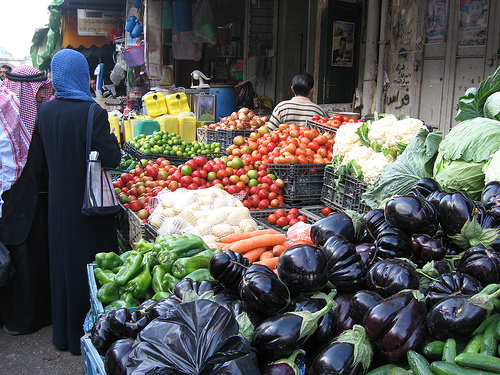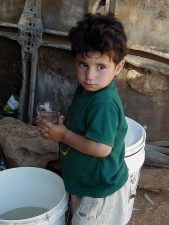Leaders from Israel, Jordan and the Palestinian Authority concluding talks in Tokyo yesterday with the announcement that they plan to start building an agro-industrial park in the Palestinian Territories by next year.
The agro-industrial park could provide jobs for up to 6,000 Palestinians in the West Bank. According to Japanese Foreign Minister Masahiko Komura, the park’s “success would provide local people with new jobs, promote the economic development of Palestine and hope for the future (full story from AFP).”
While we applaud the efforts of all four sides to work cooperatively towards achieving a viable Palestinian state with a successful economy, we wonder if this is another example of improper consideration of environmental concerns…
According to the plans, Palestinians working in the new agro-industrial park will grow fruits and vegetables, and export them through Jordan. Although there are few specific details besides what is just coming through the newswires, there are a few scary thoughts that pop into mind:
First of all, this region is in the worst water crisis it has seen in decades! A large-scale, industrial agricultural project will require enormous imports of water. Where will it come from? On the other side of the Green Line, Israeli Minister of National Infrastructure Binyamin Eliezer is already talking about cutting down water quotas for Israeli farmers because the crisis is so severe, so it seems illogical that Palestinians are planning to massively increase their water consumption – via agriculture – as a basis for economic growth.
If the agro-industrial park is based on conventional agriculture (which it most likely will be), then it also poses a risk to soil and groundwater. Conventional agriculture can quickly and easily strip soil of its nutrients, which causes a need for fertilizer inputs (on top of the inevitable pesticide inputs). These chemicals can leach into the groundwater, of which Palestinians already have preciously little, posing a threat to human health.
Additionally, the process of conventional agriculture is very fossil fuel intensive, in terms of machinery, chemicals, packaging and shipping, etc. In an era of climate change and skyrocketing oil prices it seems both environmentally irresponsible and economically unwise to tie an infant economy to petroleum.
The Japanese are planning to begin a feasibility study in November. Again, while we congratulate our political leaders on striving towards regional peace, let’s also remind them that a sustainable peace requires sustainable environmental and economic solutions.
Related Prophecies :: Green News from the Arab Blogosphere :: Israelis and Palestinians: Teaming Up for the Environment
Photo credits: AFP and ahote’s_photolog





